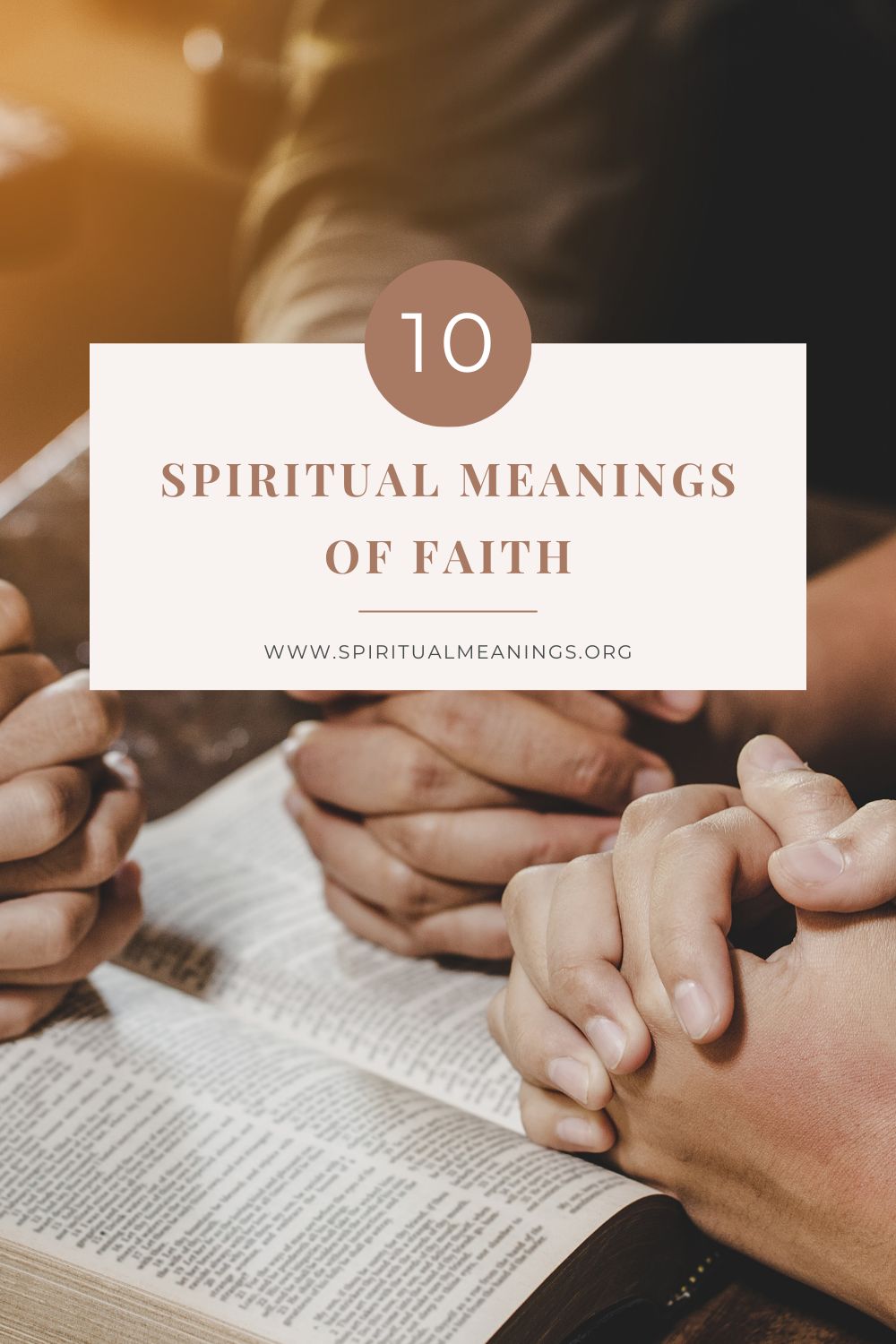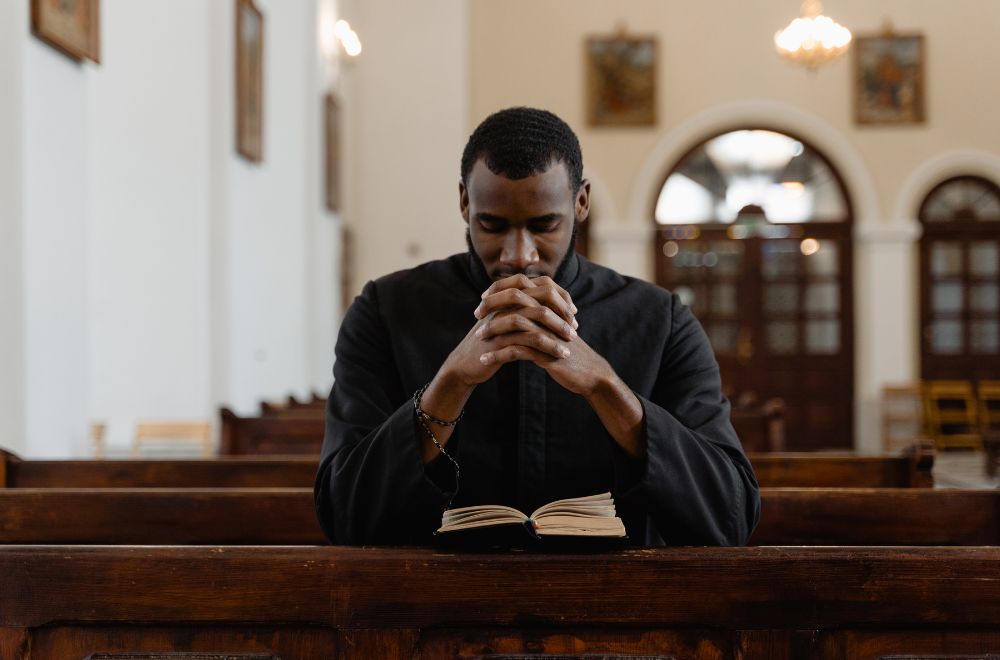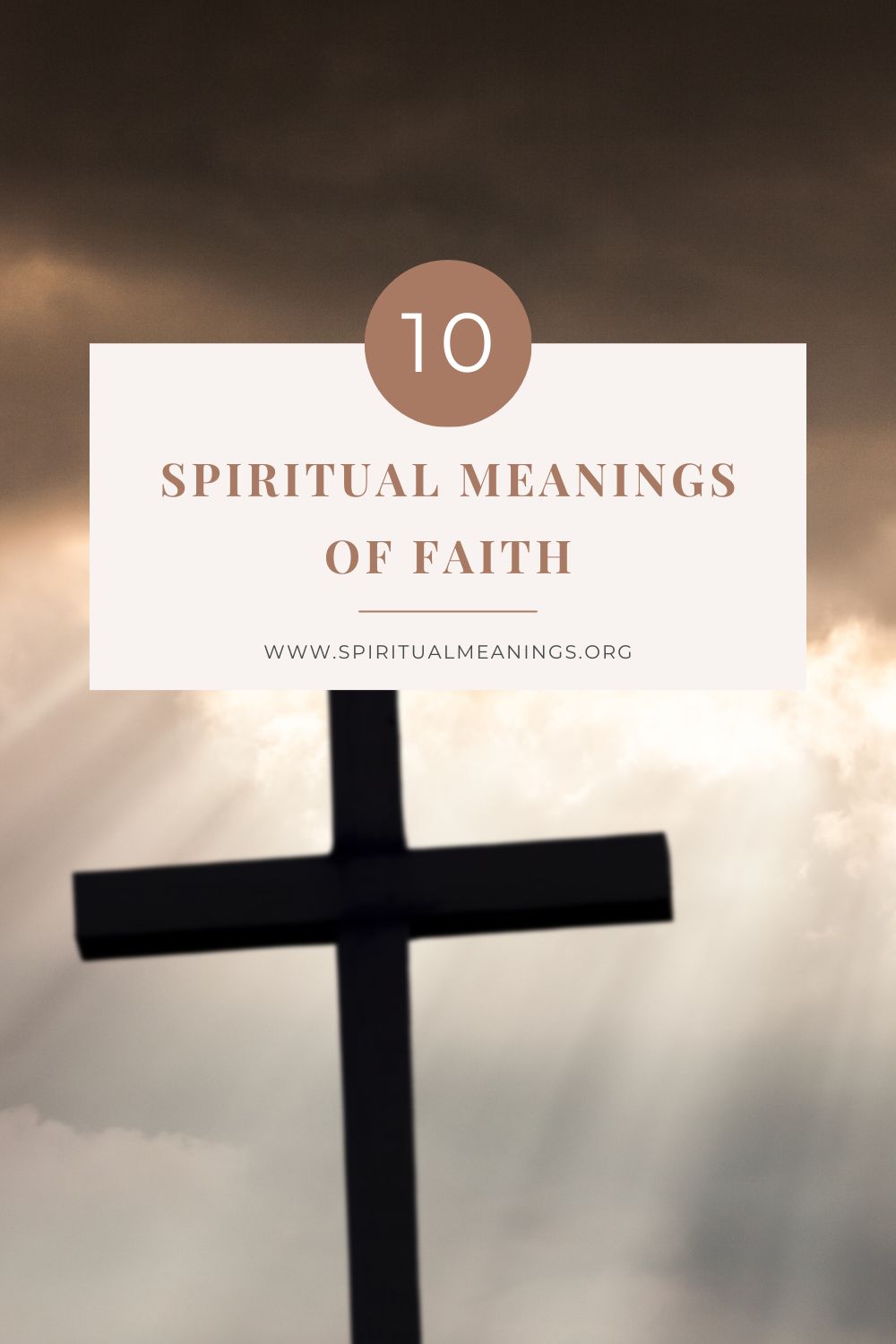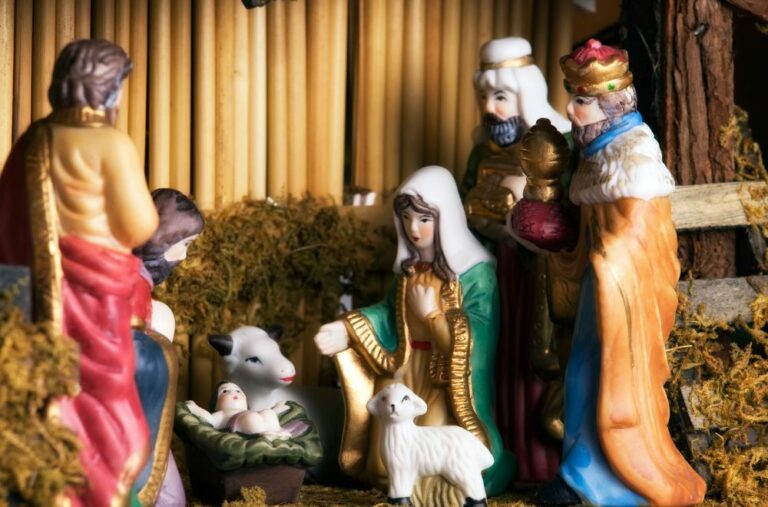In what scenarios do you commonly get to hear this phrase, “Have some faith”? When you are experiencing uncertainty or doubt, or when facing challenges, right?
Mostly, the phrase is used to urge you to believe and trust in the works of a higher power or trust that everything is going just as planned by the divine. Well, this might come as a surprise, but this meaning is just a surface-level explanation of the phrase.
Faith is more than just a spiritual belief in a higher power. It is a sacred process of recognizing the divine’s power, surrendering to the power, seeking spiritual enrichment, and more.
Keep exploring to discover more spiritual meanings of faith. Next time someone uses the word “faith” in a scenario other than one involving uncertainty, doubt, or a challenge, you’ll be in a better position to decipher what they meant.
Faith Spiritual Meanings
1. Certainty in the Divine Plan
As highlighted earlier, faith involves believing in the existence of a divine plan. This is a plan that’s beyond your understanding but assures you solace in times of setbacks or challenges. Why? Because it unfolds according to a higher purpose (one you cannot redefine or negotiate against).
By trusting in the certainty of the divine plan, you become a part of the divine cosmic design. In this cosmos, you believe that there is always a deeper order in play, no matter how chaotic or challenging the life situation. Moreover, you let go of all the preconceived notions of how your life should play out and learn to run with the natural rhythms of existence.
Remember, surrendering to the divine plan does not mean just believing without actions. You must actively participate in the creation of reality with the help of the divine plan. You should be willing to offer your efforts and intentions while letting the higher power take charge in determining the outcome.
2. Cultivating Inner Stillness
Other than being open to leading a life guided by the divine plan, faith also means working on your inner stillness or peace.
Within you, there exists an eternal source of serenity and peace. It is a holy sanctuary, less affected by life’s challenges or internal turmoil. And you can tap into this enduring stillness by having faith.
Getting access to your inner peace through faith requires spiritual discipline, introspection, and mindfulness. You are supposed to turn inward, quiet your mind, and attune yourself to the divine presence in your life.
Meditation or prayer can help you attune yourself to the divine presence, thereby giving you access to a deep-seated connection to the divine. This deep connection to the divine is what lights up the sacred flame of inner peace in you.
3. Surrendering to the Unknown
Faith also means surrendering to the unknown. In this case, you acknowledge your limitations and egotistic understanding of the world around you and become willing to embrace the mysteries of life (Mysteries formed and defined by the divine one).
By relinquishing the voice in your head that desires certainty and control, you not only demonstrate how strong you are but also accept that you are but a speck in the vast universe built by a higher power.
Opening your understanding to the unknown grants you liberation and freedom; you no longer serve your finite understanding of the world, rather you become a magnet of infinite possibilities and divine guidance.
4. Nurturing Hope
Hope and faith go hand in hand. Just like faith involves believing in a divine plan no matter the circumstance, so too does hope involve perseverance and holding onto the promise of better days ahead.
Also, faith fuels hope. Through faith, you get to learn how to cultivate resilience when faced with challenges. You learn to embrace the present situation with acceptance and gratitude while simultaneously holding onto the hope that everything will turn out as the divine plan outlines.
By nurturing hope through your faith, you worry less about the outcome of life’s events as your life is infused with newfound possibilities and optimism. You become less attached to the outcome and focus more on learning from the boundless field of possibilities in life.
5. Finding Strength in Adversity
This is also a common spiritual meaning of faith. Many believe faith is a source of strength in times of difficulty because it is during such a moment that your faith is revealed and tested.
Just as mentioned earlier, you are more likely to hear someone say, “Have some faith,” especially when you inform them about your sorrows and worries.
Faith redefines adversity. Rather than letting you focus on the pain and grief of the trying times, faith infuses that moment with value and significance. This makes suffering a catalyst for personal and spiritual growth.
Furthermore, during times of trouble and adversity, faith reminds you about the impermanence of life and the need to cherish each moment with joy.
6. Embodying Purposeful Existence
As you trust in the greater plan, you also embody purposeful existence because it is by following the plan that you get to discover your life purpose. In this case, your faith serves as an inner compass, pointing you towards self-fulfilling values and purpose.
It is through faith that you find clarity amidst exploring the complexities of the divine plan. You believe that the choices you make empower you to attain your life purpose.
While on the journey of self-discovery remember living in alignment with your faith is not easy. You will be required to make challenging choices and sacrifices at some point. The challenges and sacrifices are meant to strengthen you as you evolve and grow toward understanding and fulfilling your life’s purpose.
7. Abundance and Gratitude
Faith also means being thankful for what you have and realizing that all limitations are self-imposed.
Through faith, you learn to focus on what is present rather than what is lacking. Faith helps you realize that even in times of adversity and hardship, there is so much to be grateful for such as the simple joy of feeling the sun on your skin.
You also learn that the universe is filled with unlimited resources both tangible and unseen. Meaning abundance is not limited to physical wealth. You can enjoy the gift of abundance by practicing open mindedness and appreciating the relationships around you, the natural world, and allowing yourself to experience various emotions.
8. Forgiveness
Sometimes, anger, bitterness, and resentment due to holding on to a grudge can be blinding to the point of ignoring the significance of forgiveness. However, by reviewing your faith, you realize that at some point, you have to move forward after receiving forgiveness from someone else.
Faith invites you to extend the same compassion and grace to others by forgiving them. It teaches you to see beyond human imperfections and to appreciate the divine spark that resides in others. Through this lesson, you find it easier to reconcile with others.
By forgiving others, your faith in the essence of healing and liberation grows. You confront your own vulnerability, pain, and shadows of the past, allowing you to begin a new journey towards healing and reclaiming worth and dignity as a spiritual being.
9. Embodying Compassion
In addition to faith being a personal endeavor, faith also brings people together. And it does this by teaching them about the essence of divine compassion.
Divine compassion recognizes the inherent worth of everyone despite their beliefs, circumstances or background. It teaches about the interconnectedness of all beings and their significance in sustaining the existence of other organisms around them through love and care.
By embodying divine compassion, you get to express your faith in humanity. You naturally express generosity and empathy in the interconnected web of life, offering comfort and solace to others in times of distress and hardship.
Embodying compassion enhances your faith because you can see beyond the surface of human appearance and connect deeply with others without discriminating. You can easily extend a hand of support, as you understand the triumphs, sorrows, struggles, and joys of traveling the sacred journey of self-transcendence and self-discovery.
10. Embarking on Spiritual Enrichment
Finally, faith can also mean embarking on a path to spiritual enrichment. In short, you want to lead a faithful life and get rid of doubt and fear in your life.
On your journey to spiritual enrichment, strengthening your faith in the existence of a higher state of consciousness and truth deepens your connection to the spiritual realm. This can be done through contemplation, prayer, and meditation.
Know this the journey to spiritual growth is much richer than you can imagine when shared with others. The reason behind this statement is that shared faith brings together a diverse set of spiritual insights. This leads to greater wisdom and understanding among the group, illuminating the path towards spiritual awakening.
Faith (Beyond Believing in a Higher Power)
On the surface, faith simply means believing in the existence of a higher power and its ultimate capabilities. However, faith spans beyond this meaning and covers aspects including hope, forgiveness, compassion, and more.
While on the journey of self-discovery, faith can teach you a lot including the need to surrender to the unknown, cultivate inner peace, and more. You should be open to learning and changing to capitalize on these lessons and more.
That’s all we had for this post. We hope you have expounded your understanding of the spiritual meaning of faith and can now determine what it means to have faith in different life situations.











